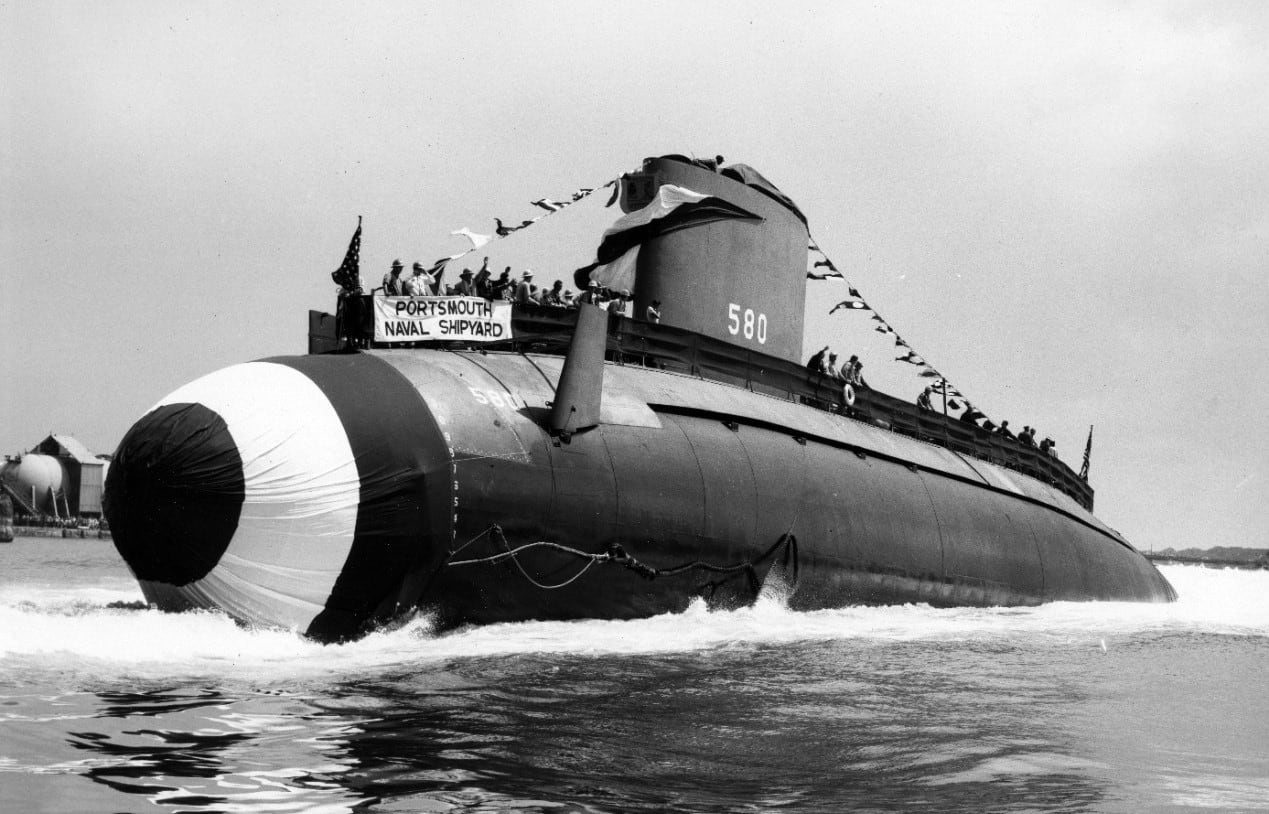Capt. Thomas Gorey III knew he wanted a career in the Navy. He did not, however, realize it would last as long as it did.
More than 40 years after raising his right hand in 1982, the 58-year-old sailor, most recently the chief nuclear weapons inspector for the United States Pacific Fleet, has finally departed the sea service.
Gorey, believed to be one of the last active duty service members to have served aboard a diesel-electric attack submarine, retired July 14 aboard the Iowa-class battleship Missouri in Pearl Harbor, Hawaii.
Gorey’s status as the last active duty sailor to have served aboard one of the conventionally-powered boats — the captain served on the submarine Barbel from 1987 until its decommissioning in 1989 — has not officially been confirmed by the Navy, but U.S. Pacific Fleet spokesperson Lt. Cmdr. Christina Sears told Military Times he is certainly among the last.
The sailor’s retirement offers a reminder of a period when diesel-electric powered vessels dominated 20th century submarine warfare and the strategic and technological changes which subsequently ushered in nuclear-powered subs.
Aside from the Dolphin, a diesel-electric research submarine which decommissioned in 2007, the military began exclusively using nuclear-powered submarines after the Barbel-class sub Blueback decommissioned in 1990.
“There’s a huge difference between diesel- and nuclear-powered vessels,” Gorey told Military Times. “One, a diesel boat stinks really bad because it’s burning diesel all the time.”
Limited water on the diesel boats also meant fewer showers for sailors, he said, adding to the symphony of pungent smells permeating throughout the tight-quartered vessels.

In their heyday, submerged diesel submarines could remain relatively quiet when running on batteries, but that limited endurance and power, Lt. Cmdr. Amelia Umayam, a spokesperson for Submarine Force, U.S. Pacific Fleet, told Military Times. Umayam added that nuclear power allows a submerged submarine to move at high speeds without concern for fuel consumption.
Before joining the Barbel, Gorey reported in 1983 to his first submarine, the Sturgeon-class nuclear-powered submarine Gurnard, where he said he did every dirty job imaginable as a torpedoman’s mate.
Aboard the Barbel, Gorey worked as the leading petty officer for the torpedo division and served as the ship’s leading diver during the sub’s deployment to the Pacific. But in the spring of 1989, a massive wave swamped the vessel, sending crew members overboard and threatening a flood of the battery compartment, according to Naval History and Heritage Command. After a series of repairs and inspections to determine its seaworthiness, the Navy concluded the sub was not worth a full refit.
Beyond submarine assignments, between 2007-08, Gorey volunteered for individual augmentation in support of an Army mission in the Helmand Province of Afghanistan.
“I learned to adapt and overcome obstacles with limited resources,” he said, using lessons from working aboard submarines to help train an Afghan garrison.
Just prior to his retirement, Gorey worked with a team to inspect and certify submarines at Washington’s Naval Base Kitsap-Bangor. But those days are now in the rear view.
As for what’s on the longtime sailor’s horizon, Gorey and his wife plan to move to North Carolina to be closer to family, he said. There, they intend to build a ranch with animals to support veterans, as well as a kennel for Special Forces troops to leave dogs while deployed.
“Capt. Tom Gorey is an exceptional leader and a dedicated and selfless person who committed 41 years to the Navy and our [n]ation,” Rear Adm. Blake Converse, the deputy commander of U.S. Pacific Fleet, told Military Times.
“Throughout his career, Tom has made a difference in every command he served at and among the sailors he served with, whether in the wardroom, chief’s mess or on the deck plates. I know his legacy of service will continue long after he departs U.S. Pacific Fleet.”
Gorey’s personal awards include the Legion of Merit, Bronze Star, Meritorious Service Medal (four awards), Navy and Marine Corps Commendation Medal (three awards), Air Force Commendation Medal, Navy and Marine Corps Achievement Medal (six awards) and various service and campaign awards.
Jonathan is a staff writer and editor of the Early Bird Brief newsletter for Military Times. Follow him on Twitter @lehrfeld_media





